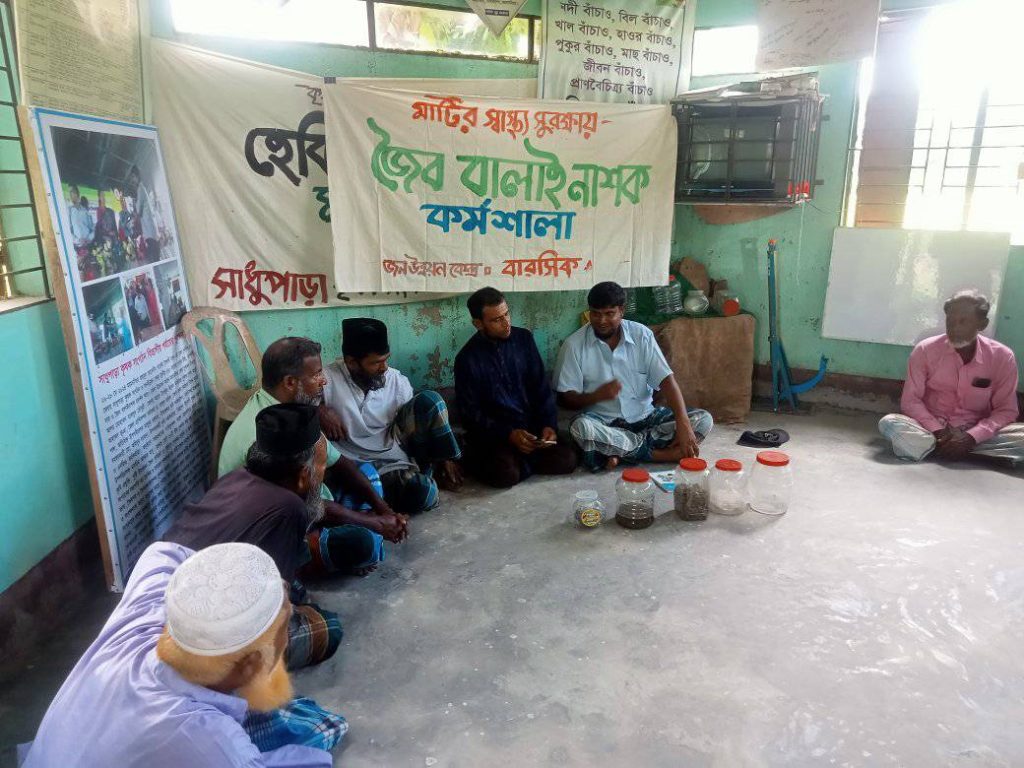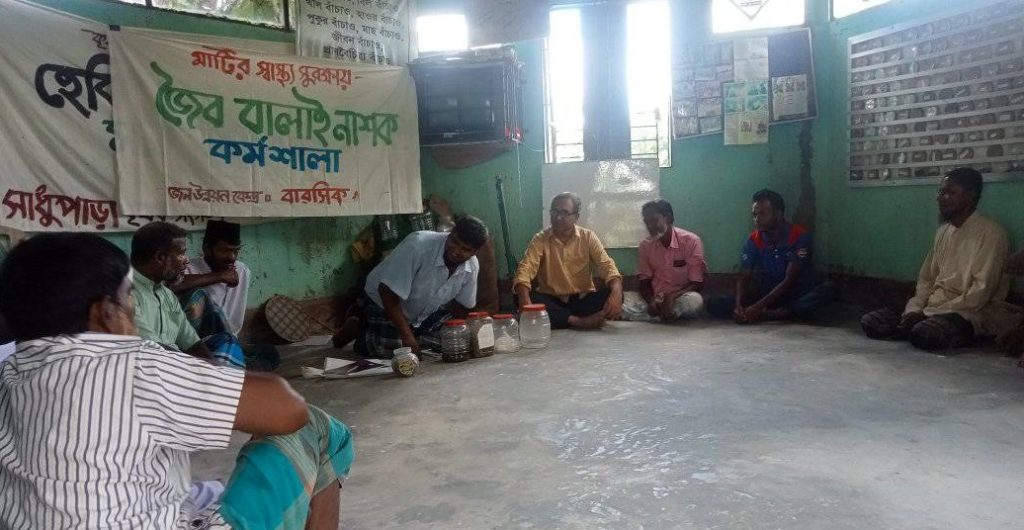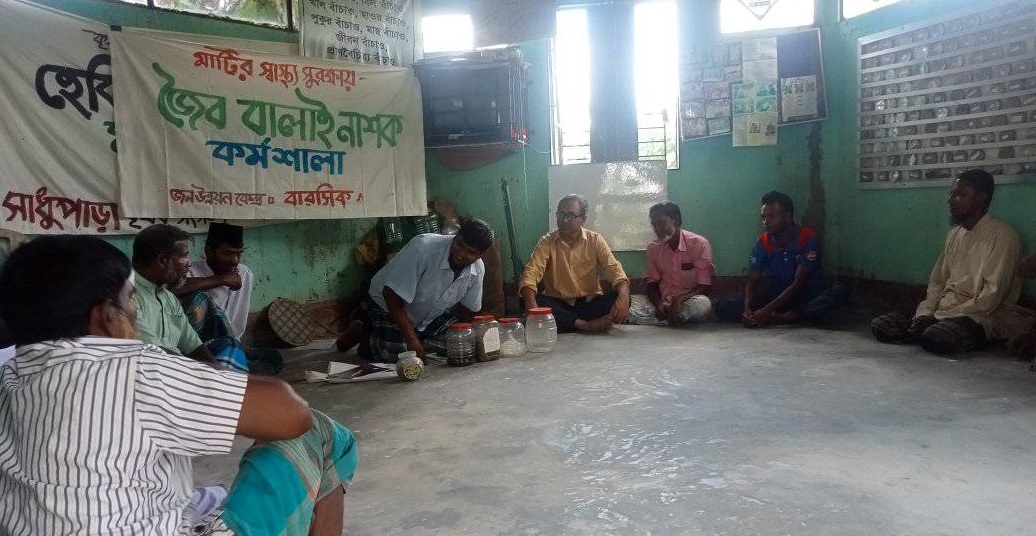By Nurul Haque from Netrakona
An “Organic Pesticide Workshop” was held at Janunnayan Kendra in Sadhupara village, under Kamarian Union of Tarakanda Upazila in Mymensingh district recently organized by the Sadhupara Farmers’ Organization with the facilitation support from BARCIK.

Representatives from the “Shoto Bari” (Model homesteads garden) initiative across nine villages of Kamaria, Bishka, and Rampur Unions participated in the workshop. Supervisors of the Agroecology Learning Center (ALC) and 21 farmers involved in vermicompost practice and use also participated in the event. Farmer-researcher Abdul Bari, Director of Janunnayan Kendra facilitated led the training.
The workshop opened with a welcome speech by Mr. Md. Ohidur Rahman, BARCIK’s Regional Coordinator. He said: “The indiscriminate use of chemical pesticides is polluting our soil, water, air, and environment. Beneficial insects, frogs, earthworms, bees, butterflies, and many other microorganisms are disappearing.” He further said, people are suffering from cancer and other deadly diseases, and farmers themselves are being harmed most by this unregulated use. We must turn away from pesticides, poisons, and chemicals and increase the use of organic pesticides.”
During the practical sessions, farmers were trained to make organic pesticides using Neem leaves, agra leaves, tobacco leaves, cow urine, naphthalene, kerosene, detergent, and mahogany seeds. The facilitator also explained application methods, and participants learned hands-on.

In addition to organic pesticide preparation, farmer A. Hekim led detailed discussions on making vermicompost, quick compost, green manure, sun hemp, cow dung fertilizer, and organizing “parsing festivals” to promote sustainable practices.
Farmer Dulal Mia shared his experience saying, “I grow vegetables at home year-round without using any chemical fertilizers. I make and use organic pesticides from plants. I urge everyone to do the same.”
At the end of the session, participants visited Abdul Bari’s “Shoto Bari” site, vermicompost facility, and plant nursery for further learning.

